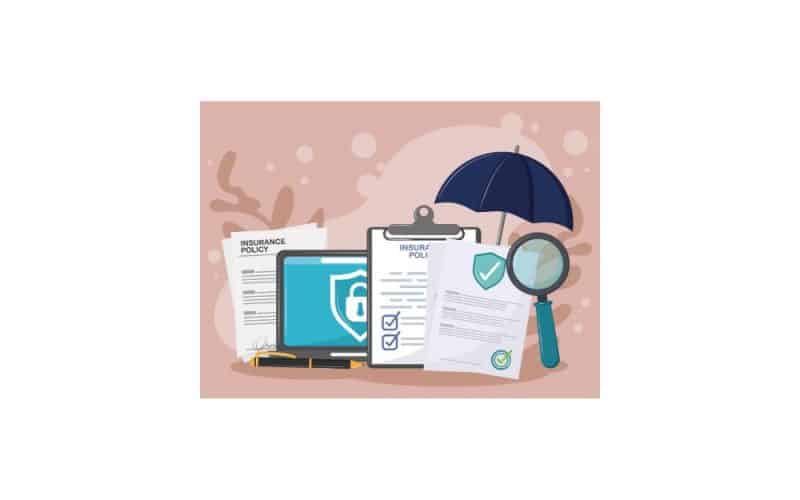If your business is required to have liability insurance, you might be asked to provide a certificate of liability insurance. Depending on the nature of your business and your location, you might be required to carry liability insurance. General liability insurance covers your business for accidental property damage and bodily injuries caused to others.
It also covers problems such as reputational harm, advertising injury, and copyright infringement. And even if you are not required to have that coverage, a general liability certificate of insurance can help allay client concerns.
To get a certificate of liability insurance, you’ll first need to have a business insurance policy. Almost all businesses should have general liability insurance. You can also request a certificate of liability from vendors you plan to work with to verify their coverage.
What is a Certificate of Liability Insurance?
A Certificate of Insurance (COI), also known as a Certificate of Liability Insurance, is proof of an active, valid insurance policy and serves as verification to your vendors, customers, or landlords that your business is indeed insured.
A COI for most insurance policies is no longer than one page. It lists the name of the insurance company, the types of coverage your business has, its limits, policy numbers, and effective and expiration dates. Potential clients may request that you have insurance coverage in place for which a certificate of business insurance can be used to demonstrate compliance with this request.
Typically, contractors and clients require insurance that grants protection against liability for workplace accidents or injuries to conduct business. A certificate of insurance is important for business because the COI evidences that the insurance is in force.
A certificate of liability insurance is also known as an ACORD 25 form. Most insurance professionals use a template developed by the Association for Cooperative Operations Research and Development (ACORD) to issue a liability Certificate of Insurance (COI). This is why you’ll often hear a COI, in insurance terms, referred to as an ACORD certificate or ACORD 25 form.
Small businesses may want a general liability insurance certificate to:
- Prove to a client that you have enough insurance before taking on a job.
- Show a landlord you have liability coverage.
- Comply with requirements for professions that must have general liability insurance, such as real estate agents. A certificate can also show other coverage, such as workers’ compensation insurance and errors and omissions insurance.
What does a Certificate of Liability Insurance Cover?
A certificate of liability insurance includes basic information about your general liability insurance policy, including:
- Coverage limits
- Types of coverage
- Deductibles
- Insured business owner(s)
- Business name
- Policy number
- Insurance company’s name
- Policy start and end date
What does a Certificate of Liability Insurance include?
A certificate of liability insurance includes:
- Your insurer’s name and your policy numbers.
- Policy effective dates.
- Policy limits.
- The names of the insured parties.
The form should include information from your general liability insurance policy. If you have other types of liability protection — like commercial auto insurance, workers’ compensation insurance and excess liability insurance — your certificate of liability insurance may show those policy details, too.
You should be able to access certificates of insurance for all of your business insurance policies. In general, these documents include the same types of information that certificates of liability insurance do, like your insurance company’s name, your policy numbers, coverage limits and the names of additional insureds.
Benefits of a Certificate of Liability Insurance
The benefits of COIs extend to other types of businesses as well, including small business owners, freelancers, and solopreneurs. For example, if you’re an IT consultant who provides web development or monitoring services, your clients want to know that they’re protected from potential losses due to site downtime or a server crash. Your certificate of business insurance can put their minds at ease.
Basically, if there’s potential for something to go wrong during the course of your work with a client — whether that “something” is physical injury, property damage, or another type of loss — you’ll want to get an insurance policy (and the COI to prove it).
Almost all businesses that utilize contractors will require that the contractor provide them with a liability insurance certificate. While less expected with other transactions, such as between service businesses, pre-empting the ask and providing your prospective client with a COI during the sales process can do much to gain their trust and earn their business. It’s a clear indicator that you take your business seriously and helps to establish yourself as a professional.
In fact, it’s a common practice for clients to ask to be added as an Additional Insured to your policy. This ensures they’re covered if they are sued as a result of damage or injury you may cause. A COI can also display their status as an Additional Insured on your policy.
How do I request a Certificate of Liability Insurance?
You can request a certificate of liability insurance if you have a general liability insurance policy, though you typically receive a certificate of liability insurance once your coverage begins. If you lose track of your certificate or need another copy, there are two ways to get one:
- Online: Insurance companies may allow you to download a digital certificate of liability insurance through your online customer profile. You can send a physical copy or a digital copy to the person requesting it.
- Contact your insurance company: If you don’t have access to a digital version of your certificate, you can contact your insurance company and request a duplicate. You might be able to request a hard copy in the mail or a digital version sent to your email.
Who needs a Certificate of Liability Insurance?
Any business that wants to show it has the proper coverage can benefit from having a general liability insurance certificate.
Professions that typically buy general liability insurance coverage include:
- Artisan contractors
- Consultants
- IT contractors
- Janitorial services
- Landscaping services
- Marketing firms
- Real estate agents
- Small business owners
How much does a Certificate of Liability Insurance cost?
In general, business insurance providers offer certificates of liability insurance for free to existing policyholders.
You will need to purchase a policy to have access to a COI, and the cost of business insurance can vary widely depending on what your company does, how many employees you have, whether you’ve filed claims in the past and other factors. Getting quotes from several different insurance companies can help you find the best coverage at the best price.
Do I need a Certificate of Liability Insurance?
Having a certificate of insurance is important for both client and vendor relations. Potential clients may ask you for your liability insurance certificate before conducting business with you and, if you can’t produce one, it may lead to loss of business and damaged rapport. Clients and vendors would like to enter a business relationship in which both parties have proper coverage in order to instill confidence in the partnership and mitigate risks. In order to obtain a certificate of liability insurance, you must have valid and current insurance placed in your company name.
A COI is issued by your insurer or its representative and is often included in the package of documents you receive upon purchasing your policy. This one-page document summarizes the key details of your business insurance policy, including:
- Your legal name and business information, including your state and street address
- The insurer who issued your policy, their address, and phone number
- The policy number, effective date, and expiration date (e.g., the time period your insurance is in place)
- The type of coverage included (e.g. professional liability or commercial general liability)
- Insurance limits and deductibles in dollar amounts
- The party requesting the COI (called the “Certificate Holder”)
- An indication of whether the Certificate Holder has been named an Additional Insured on the policy
How long does it take to get a certificate of liability insurance?
If you have a business liability insurance policy, you may already have a certificate of liability insurance in your policy paperwork.
Some providers, including biBERK and Thimble, offer instant digital certificates of insurance that you can share electronically with your landlord, clients or subcontractors.
Other business insurance providers require you to request a copy online or over the phone, but they should typically be able to provide your COI in a matter of hours.
Yes! Although, typically, you would have to contact your broker or insurance agent to request they create and share your certificate of insurance for each COI request, which can take a lot of time.
Here are the things you need to consider before sending a client your certificate of liability insurance:
- Ensure your business name is properly displayed on the COI – does the name of your company match what is listed on the document?
- Ensure that the coverage shown on COI matches what is provided by your policy by checking your liability policy limits.
- Expect clients to contact the insurer of the COI to make sure it is a real entity.
- Look at the Expiration and Effective dates listed on the Certificate of Insurance – will those dates cover the length of your business partnership?
- Potential clients will most likely double-check your COI when beginning a partnership even if you have done business with them in the past.
Why do I need to show proof of liability insurance?
General liability insurance certificates are commonly utilized in business situations where there’s a potential for liability or loss.
A certificate of insurance for small businesses is important because, quite simply, it gives business owners and contractors the confidence that they have insurance protection. And in turn, their clients have protection as well.
A COI is a document that provides others with proof that you have business liability insurance to protect your business against claims of bodily injury, property damage, or negligence.
Many companies and individuals may also require you to provide a certificate of liability insurance before signing a contract, for the same reason: if something goes wrong, they want to rest assured that they won’t suffer financial consequences or have to make a claim under their own insurance policies for a loss you have caused.
For example, if you’re a handyman coming to work on a construction project at your client’s workplace, they’ll want to know they won’t be financially responsible if someone sustains an injury due to an accident that results from the work you are doing for them. Likewise, if some of your equipment crashes through a window and causes property damage, that person will want to know that you have the coverage to pay for that. This can be corroborated by your COI.
It’s a good call to always have your COI on file, ready to prove you are prepared for the next business opportunity.
Recommended Articles
- Certificate of Insurance for Business: Why, When & How to Get One?
- How Much Does Small Business Insurance Cost in 2023?
- PERSONAL LIABILITY INSURANCE: Personal & Renters Liability Insurance And Coverages
- Cleaning Business Insurance and Bonding: Finest Options
- BUSINESS LIABILITY INSURANCE ONLINE: Detailed Guide
- “CYBER INSURANCE: What Is It & Why Is It Important? “






